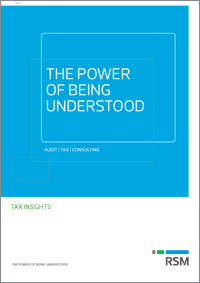As a consequence of the federal budget agreement, the Belgian government has decided to adapt the existing special tax regime for foreign executives with a new tax regime that will enter into force on January 1, 2022. Please note that this new regime still must be submitted to the Belgian Parliament who can still make adjustments to the changes mentioned below. The submission to the parliament will take place before the end of this year.
CURRENT REGIME
The special tax system for foreign executives was introduced by the Belgian government to make Belgium more competitive and attractive for companies that wanted to establish themselves in Belgium. This was done by reducing the labour costs for foreign employees and specialists who were temporarily on secondment in Belgium through the special tax regime for foreign executives. The benefits granted in this way are summarized below:
- The employee/director is considered as a fictitious non-resident of Belgium which means that only the Belgian source income needs to be declared;
- The employee/director can deduct a certain amount of 'tax free allowances' from his/her taxable income;
- The employee/director is allowed to exclude the foreign professional working days from taxation in Belgium.
However, this special tax regime for foreign executives was introduced by a circular letter without any legal basis. Because of this and the complexity of the current regime, the Belgian government decided to introduce a new regime with a legal basis.
NEW REGIME
The new special tax regime for foreign executives will enter into force on January 1, 2022. For the employees who currently still benefit from the current regime, a transition period of 2 years will be applied which will be discussed below.
1. Residency
The persons benefiting from this new regime will be considered as residents of Belgium and will no longer be considered as fictitious non-residents as under the current regime. The consequence is that they now also have to declare their worldwide income in Belgium which will result in an additional tax. However, these persons can now invoke the double taxation treaties between Belgium and other countries, which was not the case before.
If they are able to present a residency certificate from the other state to the Belgian tax administration, they can still be treated as Belgian non-residents.
2. Conditions
For employees who do not qualify as researchers or as a self-employed executive appointed as a director of a Belgian company, the following conditions must be met in order to benefit from the new regime:
- During the 60 months prior to the start of the employment in Belgium the individual must:
o not have been taxed as a resident of Belgium;
o have lived at least 150km from the Belgian border;
o not have been taxed on his professional income as a non-resident of Belgium;
- The employee or manager must be recruited directly from abroad through a secondment or a transfer within a multinational organization or non-profit organization;
- Minimum gross salary of € 75.000 per year.
If the employee qualifies as a researcher, only the second condition above needs to be fulfilled. In addition, the employee must hold a master's degree in a field specified by the government. Furthermore, they need to have at least 10 years of experience in these fields.
3. Benefits
- 30% of the gross annual salary of the employee or manager will be qualified as a cost proper to the employer which will be treated tax free (capped at € 90.000,00);
- The following costs proper to the employee are not included in the 30% rule, but may also be considered tax free:
o Moving and relocation costs;
o Certain school fees (from the age of 5 years);
o Costs of furnishing the home in Belgium (equivalent of 1 month's rent);
- The new regime is granted for a period of 5 years with a possible extension of 3 years;
- A change of employer does not directly mean the end of the new regime if all conditions are still met;
4. The procedure
The application for the new regime has to be submitted to the Belgian authorities within three months after the employee or director started working in Belgium. In addition, this request has to be a joint application, which means that the employee or the director has to submit the request together with his employer.
The Belgian government has 3 months after the submission to respond to this application.
The employer must also submit an annual overview (before 31 January of the current year) to the Belgian government listing all employees and/or managers who have benefited from the new regime in the previous year.
TRANSITION PERIOD
Taking into account that this new regime will enter into force on January 1, 2022, the Belgian government has granted a transition period of 2 years for employees and company directors who already have enjoyed 5 years of the current regime on January 1, 2022, and for employees and company directors who do not meet the new conditions of the new regime. They can still benefit from the current regime up to and including December 31, 2023 and will be considered as residents of Belgium as of January 1, 2024.
Employees and company directors who, on January 1, 2022, have not yet benefited from the current regime for 5 years, but who do meet the conditions of the new regime, can opt to benefit from the new regime. If they wish to benefit from this new regime, they must inform the Belgian authorities before June 30, 2022.
If you have any questions regarding this topic, don’t hesitate to contact our RSM Belgium | Tax team ([email protected]).
RSM Belgium | Tax

